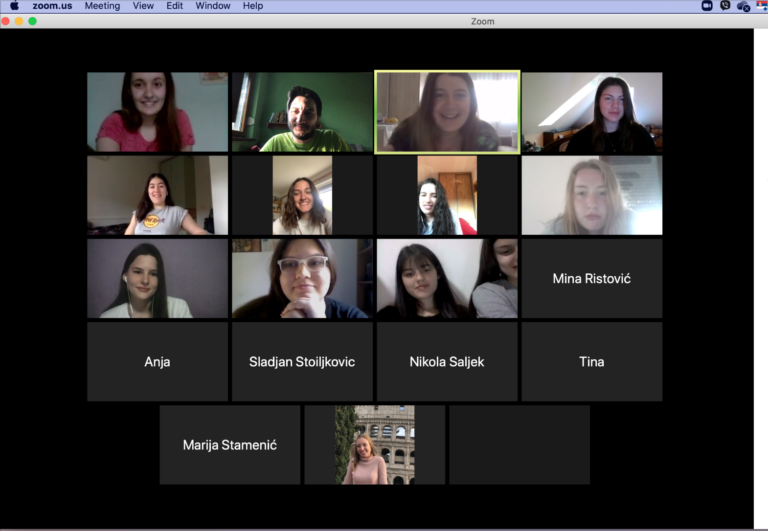
General goal: Involvement of high school and university students in the provision of peer psychosocial help and support during the period of emergency and pandemic of the new corona virus.
Implementation period: May 2020 – September 2020.
Specific goal: Involvement of high school and university students in providing online peer psychosocial assistance and support during the state of emergency and pandemic of the new corona virus, from the territory of 63 municipalities in Serbia with an emphasis on particularly affected municipalities and cities.
Through peer support, they are also working on internet security and developing a critical attitude towards half-information and misinformation during the pandemic.
What is important?
The pandemic of the new corona virus has also affected Serbia, pupils and students, unlike the older generations, are not used to crisis situations and are therefore more severely affected.
During an emergency, the side effect is an increased level of stress in pupils and students with all the changes they have faced these days (from the way of entertainment and socialization to education).
The situation has revealed another weakness in our society, and that is that young people are not so skilled in using digital learning tools, because they generally narrow their time in the digital sphere to just a few applications: instagram, ticking and playing games. This is not what makes the digital transformation of a society, and therefore our society is expected to lag behind in the labor market, which is globalizing and digitalizing. On the other hand, investing in education is something that can push Serbia to progress and improve its standard of living. But it is a task for the education sector, and there is no learning and progress without the development of emotional intelligence and preservation of mental health of young people who face increasing challenges, especially when existential needs are no longer the topic of the majority, then more needs are activated and young people become more stressed. due to expectations and pressure to succeed and the ladder of success is rising more and more under the pressure of negative media influences and market globalization. This acquisition points to the need for innovation in the education sector, which is the introduction of youth work in the education sector.
Youth work is a form of social work and serves to provide support to young people during adolescence. While it is still unknown in Serbia, the work code has just been introduced and included in the catalog of occupations, and the education system for youth workers is missing, as long as it is a practice in developed European societies.
Estonia should be emulated in that sense, which institutionally connected youth work with education, and Estonia and Finland have made far progress in the digital transformation of society, as well as youth work and education.
Description of activities
Description of activities Based on the identified problems and needs in practice, the project has three groups of activities: group 1 are preventive activities; group 2 are intervention activities, group 3 are monitoring and evaluation activities to describe the model in case it is successful and identify the weaknesses and strengths of the model, this group of activities should lead to improving the project for sustainability, or to shape examples of good practice that should be offered to the public as a social innovation, which is also a form of sustainability through institutionalization.
All activities are program piloting (model research and testing) with the acute effect of providing psychosocial assistance and support to pupils and students, as well as learning and activism in the field of digital security.
Young people are involved in two ways, either by being actively involved, through civic activism, or as beneficiaries of the project service from their peers.
The Union of High School Students is a partner in the project in the role of promoting the project to the high school student population.
The project is conducted by Help Net, The Open Society Foundation Serbia is a donor to the project.
*** Together we are strong – a new opportunity and a new project “
